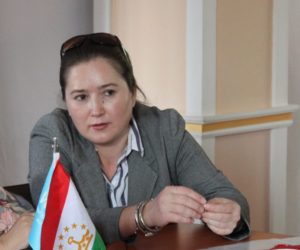
Author: Nargis Khamrabaeva, Tajikistan
Polygamy is one of the main factors contributing to the rapid spread of HIV in Tajikistan. This is stated in the research of the Tajik network of women living with HIV. In 2018, this network in cooperation with the public fund Your Choice conducted a review of the legal environment in relation to HIV.
Protection of rights regardless of the status
In Tajikistan, polygamy is officially prohibited and is punishable by a fine of two years of correctional labour. However, as the religious influence on the society increases, many men have several wives. The second and subsequent marriages are not registered but are consecrated by a mullah and normally wives do not live in one house.
“The committee on the elimination of discrimination against women called on Tajikistan to ensure the protection of women’s rights in existing polygamous and religious marriages regardless of their registration status,” says Larisa Aleksandrova who represents the public fund Your Choice and acts as a gender and legal consultant of the research.
According to the expert, polygamy has negative consequences in relation to HIV. First of all, in sexual relations women in Tajikistan usually do not have the right to make a decision to use condoms. Women are not able to counteract the unsafe pattern of men’s intimate behavior. According to the statistics on HIV, programmes promoting safe sexual behavior and family planning are not successful. They also do not have impact on men and youth.
Undisclosed information is a threat to unofficial wives
Larisa Aleksandrova says that another problem is that men living with HIV prohibit their wives to go to the hospital for treatment.

“One of the reasons why men have such behavior is the fear of public disclosure of their HIV status. Another reason is additional expenses on the treatment of the spouse, who usually is being financially taken care of by the husband. In many cases, such behavior led to the death of women,” tells the expert.
Besides that, polygamous men living with HIV infect all their spouses. During consultations in the AIDS Centre, they often choose not to tell that they have several wives because polygamy is a criminal offence. Therefore, undisclosed information becomes a threat to the lives of unofficial wives. They simply will not know about their status and will not be able to receive the treatment.
“Polygamy is a major risk for the spread of HIV. In 2017, in the town of Nurek a lawyer defended the interests of a woman who contracted HIV from her husband. She demanded compensation for moral and material damage due to the transmission of HIV. The investigation showed that the woman’s husband had a second wife who had died of tuberculosis. After that, according to the Muslim traditions, the man got remarried for the third time. He was seen together with his new spouse in the AIDS Center in Nurek where both of them were receiving antiretroviral therapy. It is possible that the third wife already was HIV-positive as well”, tells Larisa Aleksandrova.
This is not an individual incident. When interviewing women living with HIV, some respondents said that their husbands had second wives, and in most cases, they found out about it when they got to know about their positive HIV status.



